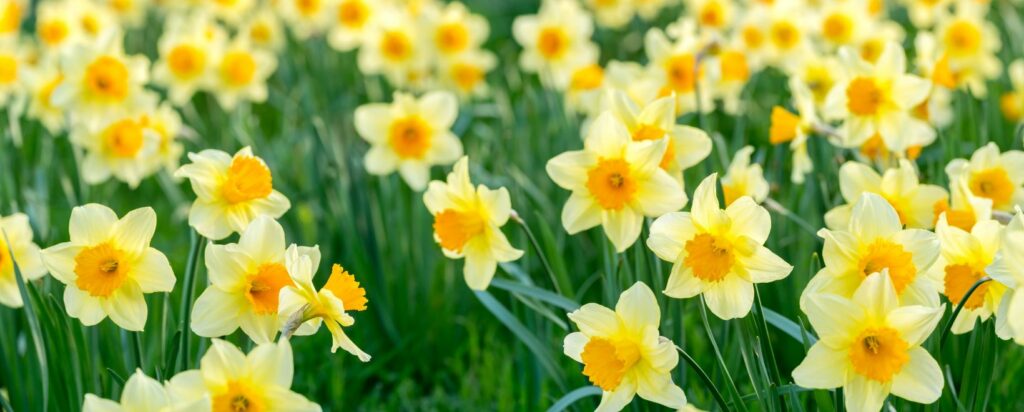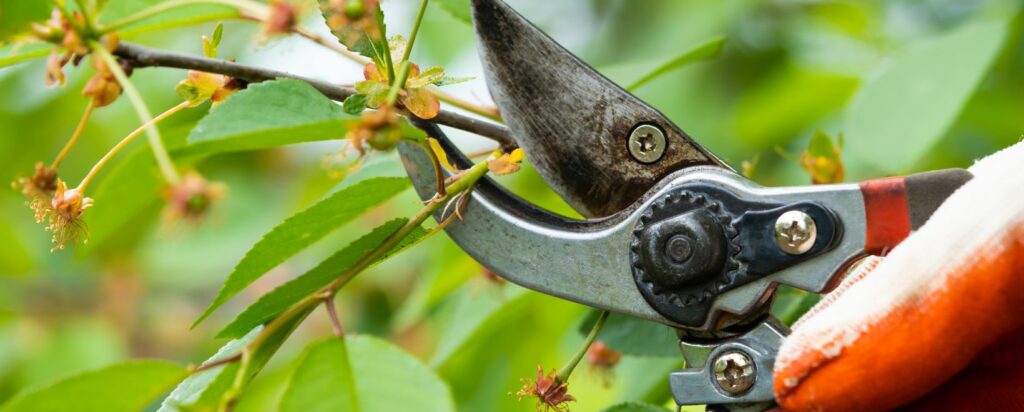Lessons from My Garden: The Power of Pruning
written by Kathy Waters

Spring has sprung!
Well, almost. Technically, it’s still winter.
But, in my yard, the daffodils are nodding their cheerful heads, and the peach tree is about to burst into a glorious froth of pink blossom. So, like any good gardener, I grab my clippers and head out to prune (and weed and fertilize and transplant, but pruning is my focus here).
There are several reasons why I might choose to prune a plant. One is simply to remove dead wood. Nothing can grow on it, so off it comes. Sometimes I have to open up and air out my plant. That involves removing any branch growing inward and removing excess branches. This will allow light and air to reach more parts of the plant, preventing disease.
Which leads to my next possible reason: to remove diseased branches. If I don’t catch these quickly enough, my whole bush might die, and other plants around it may also become infected. Maybe I want more fruit, or bigger fruit from my peach or apple trees. I will have to remove some branches (especially weak ones) and, once the fruit have set, go through and pinch off some baby fruit.
What?? Then I’ll have less fruit!
Yes, but the fruit that remains will be better, because more energy will go into remaining fruit.
Some plants I prune in order to produce a more beautiful display of flowers. The plant is healthy, branches and shape are fine, but I know this plant will bloom best on new wood. So, I give it a severe cutting.
Ouch!
But, in a few weeks I’m rewarded with strong, healthy, new growth which will bring glory to my yard.

So it is with us.
God is the Master Gardener. Of course we know He planted the beautiful garden of Eden (Genesis 2:8). He is also the gardener who planted Israel as a choice vineyard.
Then in the New Testament, read John 15:1-6.
“I am the true vine, and my Father is the husbandman. Every branch in me that beareth not fruit he taketh away: and every branch that beareth fruit, he purgeth it, that it may bring forth more fruit. Now ye are clean through the word which I have spoken unto you. Abide in me, and I in you. As the branch cannot bear fruit of itself, except it abide in the vine; no more can ye, except ye abide in me. I am the vine, ye are the branches: He that abideth in me, and I in him, the same bringeth forth much fruit: for without me ye can do nothing. If a man abide not in me, he is cast forth as a branch, and is withered; and men gather them, and cast them into the fire, and they are burned.”
Here, God the Son tells us it is His Father who does the pruning, whether in the Church or in the life of the individual believer. Being omniscient and perfect, He never prunes in the wrong season (azaleas and hydrangeas should only be pruned right after blooming if you want flowers the next year). He never prunes the wrong branch or accidentally damages other branches as He cuts.
God’s tools—the Bible applied through the work of the Holy Spirit—are always clean and sharp, protecting His choice plants from disease.
His pruning will always bring forth good fruit and beautiful, healthy growth…if we are willing.

You see, in the presence of everything else a plant needs, a plant will respond well to good pruning, fulfilling the gardener’s desire. It doesn’t have to choose to do so; it just does what it was designed to do.
We, on the other hand, must choose to respond well to God’s pruning in our lives.
Our pruning often comes in the form of the testing of our faith (James 1:2-4), and the Lord wants us to choose joy in the midst of the pruning cut.
- Maybe it is the removal of a ministry or job you have enjoyed, but which keeps you from having the energy to love your family well. After you cry for a while, will you choose joy?
- Maybe He points out wrong thinking and an overly inward self-focus. Will you let Him pour in His light and the breath of the Spirit to cleanse you and keep you spiritually healthy?
- Maybe you’ve had what I might call a “Job” pruning. You are spiritually full of vitality, serving the Lord and bearing sweet fruit, when you are blind-sided by what seems like a killing blow: the loss of a child, the loss of a beloved spouse, the loss of your own health.
It’s okay to be shocked and to mourn. Plants actually go into shock when they are pruned. But 1 Peter 1:3-7 tells us that when we are grieved (“thrown into sorrow”—think of this as the pruning) by our trials, we are to rejoice in the truth:
We have been born again into a living hope (think of that as your strong roots), so that our genuine faith in the goodness of God will spring forth into praise, glory, and honor at the revelation of Jesus Christ (that is the glorious growth God is desiring from you).
I’ll leave you with Heb. 12:3-11, specifically a paraphrase of verses 10 and 11:
“For they pruned us for a short time as seemed best to them, but He prunes for our good, that we may share His holiness. For the moment all pruning seems painful rather than pleasant, but later it yields the peaceful fruit of righteousness to those who have been trained by it.”
